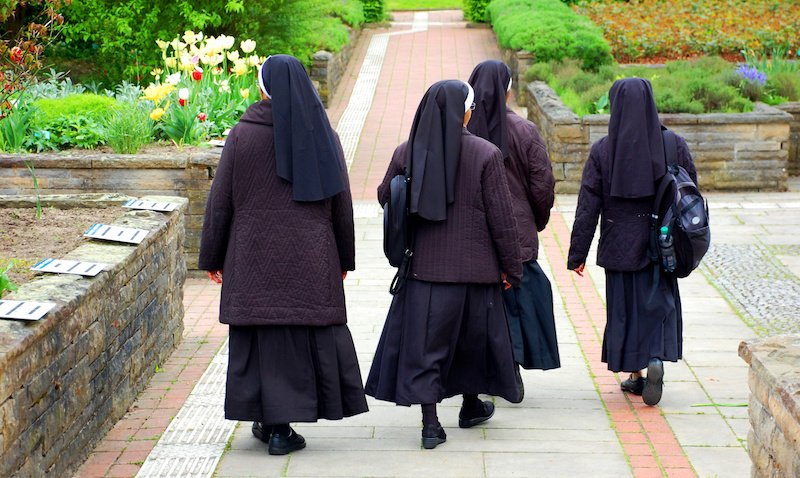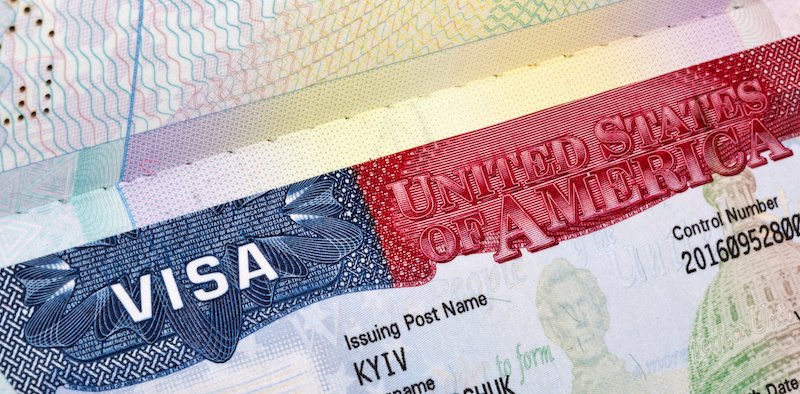Every year, U.S. Citizenship and Immigration Services (USCIS) grants permanent visas and green cards to thousands of foreign workers.
In many cases, they do so because these workers have specialized, valuable skills that are in-demand in the U.S. job market.
In other cases, USCIS grants these visas to recognize an individual’s faithful service to the U.S. and its institutions.
The EB-4 is a visa and green card program for “special immigrants,” like in the second example above, who do not fit into the other EB visa categories.
In this article, we'll talk about who these special immigrants are, as well as go over some frequently asked questions about the EB-4 visa.
Who's Eligible for an EB-4 Visa?

The EB-4 is a legal document granted by USCIS that lets you legally enter the country.
It also serves as the mid-way point between your status as an alien and your permanent residency status (i.e. "getting a green card").
In most cases, you'll file for permanent residency around the same time you file for the EB-4.
As an immigrant visa, the EB-4 itself counts as a stepping stone towards your permanent residency status. Specifically, EB-4 holders can do the following:
- Enter the United States at any legal port of entry a single time.
- File for permanent residency status within the first 12 months of their entry into the country.
- Work in the United States without a Labor Certification.
- Apply for various government documents such as a social security card or driver’s license.
To be eligible for an EB-4 visa, USCIS must classify you as a special immigrant.
This is a catch-all category for individuals who have legitimate reasons for coming to the United States, but do not fall into other visa categories.
We'll list four of these special cases below.
Religious Workers
Many EB-4 applicants are religious workers.
For EB-4 purposes, a religious worker is anyone who receives pay for performing religious duties for an established religious organization.
The law also makes a distinction between ministers and other religious workers.
USCIS issues up to 10,000 visas for religious workers every year, but only 5,000 of those visas can go to non-ministers.
"Minister" is a broad definition for individuals who have received formal authorization to lead a religious service from an established religious organization.
Examples include priests, rabbis, Buddhist monks, commissioned officers of the Salvation Army, and several others.
"Non-minister" is a definition that includes any other person with a religious vocation.
This can include a wide variety of religious duties, such as missionaries, instructors, and translators.
However, it does not include individuals with non-religious duties.
Maintenance workers, clerical staff, and performers may not apply for this visa, even if their work is sponsored by a religious organization.
In either case, you must have been working for your religious organization for at least two years to qualify for an EB-4 visa.
Additionally, your organization must sponsor your visa, under the condition that you enter the U.S. for the purposes of performing your religious duties full-time.
This process is similar to the employer-sponsorship requirement for the EB-2 and EB-3 visas.
Special Immigrant Juveniles
Juveniles in the U.S. may be eligible for an EB-4 visa if they require the protection of a U.S. juvenile court.
In almost all cases, they require this protection because they have been abused, abandoned, or neglected by a parent or guardian.
Ultimately, it is up to the judge in your case to determine whether or not it is in your best interests to remain in the country.
You must be under the age of 21 when you initially apply for your visa.
However, once you have done so, you will never “age out” of the program.
For this reason, you can still apply for a green card even if you are over the age of 21 by the time that your petition is accepted.
The special immigrant juvenile EB-4 works slightly differently from other visas.
For one, you can still apply even if you originally entered the U.S. illegally.
Additionally, you may have your immigration fee waived by filing an I-912 form.
However, filing for this preference means you can never petition for permanent residency for either of your parents.
Armed Forces Members
Members of the U.S. armed forces who enlisted in a location outside the U.S. may be eligible for an EB-4 visa after 12 years of service.
Iraqi and Afghan Translators and Support
Iraqi and Afghan nationals who provided support for U.S. armed forces operations in those areas may be eligible for EB-4 visas.
However, you must have filed for Chief of Mission Approval before the 2014 deadline. If you did not file by that date, you are not eligible for the EB-4 visa.
How Do I Apply for an EB-4 Visa?

The main difference between the EB-4 visa and other types is that in order to receive an EB-4 visa, you must first file an I-360 petition.
This form basically certifies you as a "special" immigrant by showing which specific job category your application falls under.
You must also provide evidence of whatever job you're specifically filing under. This is to prevent immigration fraud.
For example, you could show USCIS a letter written by your religious organization or a photocopy of your court documents.
Other valid forms of evidence will be listed on your I-360 form.
Additionally, you must pay a $435 processing and filing fee to USCIS. As mentioned above, juveniles are permitted to waive this fee.
If you are a religious worker, your employer will fill out the I-360 instead.
They will also normally pay the filing fee.
Conclusion

Members of many different groups are eligible for EB-4 visas. For that reason, it can be difficult to provide advice that applies to every applicant.
For personalized legal counsel, make sure you contact a professional immigration lawyer.
A good immigration lawyer can see you through every step of the application process, and help you handle any unexpected issues that arise.